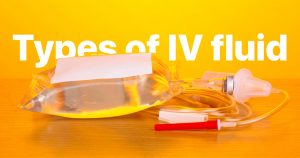There are many types of nurses and nurse specializations possible, which is why nursing will always be such a promising profession. Not all nurses need high level degrees however, there are lots of options the further you progress with your education.
You’re reading one of our “Nursing Career Guide” articles. Need to practice for your upcoming exam? Take our free NCLEX practice test -- no registration required! ✨
In this article, we will guide you through all the types of nurse certifications and specializations based on education level.
- Associate and entry-level certifications
- Bachelor-level nurses
- Master-level nurses
- Terminal/Doctor-level nurses
Associate and Entry Level Certifications
For those interested in becoming a nurse, but don’t have prior experience or a related degree, there are still many educational options available. High school and GED holders have the option to become licensed as a CNA, LPN, or LVN. Attaining an associate-level degree in nursing will earn you an ADN, for example, and with that you can begin preparing for the NCLEX-RN to become a licensed registered nurse. These are all great stepping stones for a long-term career in nursing.
CNA
A certified nursing assistant (CNA) works under the guidance and supervision of RNs or LPNs. They often work in nursing homes and hospitals to help patients on physical, emotional, and personal levels. A CNA helps patients bathe, takes and records their vitals, dresses patient’s wounds, and documents health issues for the nurse. Becoming a CNA does not require a degree, but it does require four to twelve weeks of training to earn your CNA credential.
Education route: High School Diploma or GED + CNA certification
LPN
Unlike a CNA who provides the most basic-level care to patients, an LPN, Licensed Practical Nurse, does those same duties along with more extensive care. Depending on the state you work in as an LPN there may be certain regulations on the types of duties you are allowed to perform. Becoming an LPN requires you to have a bit more education normally in a state-approved program that lasts between 12 and 18 months, and you must pass the NCLEX-PN exam.
Education route: High School Diploma or GED + Diploma in Practical Nursing (DPN)
LVN
An LVN, Licensed Vocational Nurse, is essentially the same as an LPN. The only difference is the name and state that you work in. For example, LVN is the title used in Texas and California, while LPN is used in the rest of the United States. No matter which title your state uses, LVNs and LPNs report to RNs and work under their guidance.
Education route: High School Diploma or GED + Diploma in Practical Nursing (DPN)
RN
Registered nurses oversee CNAs and LVNs/LPNs. Their job duties go much more in-depth to the patient’s care. They perform diagnostics tests, analyze results, determine treatment plans, dress wounds, and provide information to the patient on how to manage their illness or symptoms. An RN must have an associate’s degree in nursing (ADN) at the very least, and must pass the NCLEX-RN exam. It is important to mention that having a four-year bachelor’s degree is becoming increasingly required by employers.
Education route: High School Diploma or GED + Associate’s Degree up to a Doctorate’s Degree

Meet Sally: Home-Care Nurse
Sally provides health care to her patients under the guidance of their physician.
Sally has a high school diploma and went to a vocational school where she earned her LPN/LVN license.
Her job responsibilities as a home nurse are:
- Addressing wounds, changing dressings, personal grooming and hygiene
- Administering medications and running tests on blood pressure, glucose, urine and stool
- Monitoring patient recovery and compiling reports for the physician
- Educating caregivers and family on the aftercare or ongoing care of the patient
Types of Nurse Specializations with an Associate’s Degree in Nursing (ADN)
- Critical Care Nurse
- Cardiac Nurse
- Geriatric Nurse
- Travel Nurse
- Community Health Nurse
- Psychiatric Nurse
- Home Nurse
- Occupational Health Nurse
- Rehab Nurse
- Outpatient Care Nurse
- Hospice Nurse
- Pain Management Nurse
Bachelor’s Level (BSN)
If you’re interested in going to a four-year university or are already attending one, getting a bachelor’s degree in nursing (BSN) will prepare you for taking the NCLEX-RN exam and becoming a registered nurse. RNs with bachelor’s degrees have more job opportunities than those with an associate’s, they are better trained in specialty areas, and they have higher annual salaries. You’ll find some of the types of nurses with an RN title and a bachelor’s degree, below.
Education route: High School Diploma or GED + Bachelor’s Degree in Nursing + Pass NCLEX-RN

Meet Hans: Pediatric Nurse
Hans is kind, patient, and great with communicating between children and their parents.
Hans has a bachelor of science degree in nursing and passed the NCLEX-RN exam. He is a certified RN for pediatric care.
Hans’s job responsibilities as a pediatric nurse are:
- Assisting the physician during examination, treatment and procedures
- Monitoring and recording changes in children’s symptoms and intervening in emergency situation
- Evaluating children for signs and symptoms of abuse
- Administering prescribed medication and treatments provided by the physician.
Types of Registered Nurse Specializations with a BSN
- Nursing Administrator
- Orthopedic Nurse
- Informatics Nurse
- Hospice and Palliative Care Nurse
- Obstetrics & Gynecology Nurse
- Pediatric Nurse
- Surgical Nurse
- ICU Nurse
- Nurse Manager
Master’s Level (MSN)
At the master’s level, a registered nurse has the option to specialize in different practice areas like clinical, administrative or educational. Those who hold an MSN can take on far more advanced responsibilities, taking on many of the roles of a physician. The additional schooling and degree specialities offer nurses a significant salary increase from a BSN.
Education route: High School Diploma or GED + Bachelor’s Degree in Nursing + Pass NCLEX-RN + Master’s Degree in Nursing
Types of MSN Degree Focuses
- Public Health
- Nurse Educator
- Nursing Informatics
- Nurse Administrator
- Nurse Executive
- Nurse Researcher
Advanced Practice MSN Specialties
- Clinical Nurse Leader (CNL)
- Clinical Nurse Specialist (CNS)
- Certified Registered Nurse Anesthetist (CRNA)
- Certified Nurse Midwife (CNM)
- Nurse Practitioner (NP)
- Advanced Practice Registered Nurse (APRN)

Meet Bianca: Certified Registered Nurse Anesthetist (CRNA)
Bianca understands patients’ concerns with going under anesthesia and is extremely compassionate.
Bianca has a Master’s degree focusing on anesthesia. She has completed extensive clinical training, and passed a certification exam approved by the National Boards of Certification and Recertification of Nurse Anesthetists (NBCRNA).
Bianca’s job responsibilities as a nurse anesthetist are:
- Providing the patients with information about their surgery and recovery
- Preparing and administering the appropriate dose of general, local, or regional anesthesia
- Monitoring the patient’s vitals and anesthesia dose during surgery
- Working with other medical staff to develop pain management programs and recovery
Types of RN Specializations with a MSN and/or Advanced Degree
- Executive Nurse Leader
- Nurse Administrator
- Clinical Genetics Nurse
- Certified Nurse Educator
- Informatics Nurse
- Nurse Midwife
- Research Nurse
- Women’s Health Nurse Practitioner
- Nurse Anesthetist
- Nurse Educator
- Family Nurse Practitioner
- Adult-Gerontology Acute Care Nurse Practitioner
- Acute Care Pediatric Nurse Practitioner
Terminal/Doctor-Level
Having a doctorate degree in nursing is the highest level of education in the field. The programs in this curriculum often focus more on the areas of nursing leadership, like systems management, informatics, quality improvement, and data-driven specialties and decision-making.
There are a few variations for nursing professionals seeking to continue their education beyond a master’s degree but it is important to keep in mind that obtaining a doctorate level nursing degree does not make you a physician or a medical doctor.
Education route: High School Diploma or GED + Bachelor’s Degree in Nursing + Pass NCLEX-RN (Optional) + Master’s Degree in Nursing (not always a requirement) + Doctorate Degree in Nursing + Dissertation

Meet Apollo: Nursing Professor
Apollo has a great passion for teaching the generation of nursing professionals. He is also a department chair and oversees his department’s curriculum to give student’s top-notch materials.
Apollo has a PhD degree in nursing. He first earned a BSN and passed the NCLEX-RN exam, then went on to get an MSN before deciding to get a doctorate’s degree.
Apollo’s job responsibilities as a professor are:
- Planning, preparing, revising and grading curriculum and study materials for nursing courses
- Delivering lectures to undergraduate and graduate level nursing students
- Supervising students’ laboratory and clinical performance
- Hiring, supervising and conducting performance reviews of faculty members
DNSc
A DNSc, Doctor or Nursing Science, is a more research-driven, scholarly approach to nursing, much like a PhD. They focus on theory and academic research. Oftentimes, DNSs choose not to work directly with patients because they are interested in conducting innovative research, analyzing medical data, developing new healthcare procedures, and holding leadership positions.
DNP
A DNP, Doctor of Nursing Practice, is considered a terminal degree in nursing. These nurses are highly trained on clinical applications of nursing practices. Their course content focuses on things like statistics, data analysis, leadership skills, advanced clinical skills, diagnostics, and disease treatment. Many DNPs work in leadership and administration roles or they are APRNs (Advanced Practice Registered Nurse) and work directly with patients.
PhD
A PhD in nursing is also considered a terminal degree. These nurses rarely ever work with patients. In fact, many of them pursue careers in research or teaching fields, where they can truly use their education to make an impact in the nursing field through mentoring and theory application.
As a nurse researcher, they do things like identifying research questions, collecting and analyzing scientific data, reporting findings and publishing reports, and training or supervising laboratory staff and other nurses.
As a nurse educator who has chosen to take a faculty position, their responsibilities are things like planning and revising curriculum and study materials, delivering lectures, supervising student’s laboratory and clinical work, and mentoring and advising students on their future in nursing.
Final Thoughts
It is clear to see that there are many options of nurse types and endless opportunities for specializing in what interests you. With so much to consider, it is important to factor in your current level of education when deciding what type of nurse you’d like to pursue. The field of nursing has so much to offer! Get started today by taking practice exams and reviewing our nursing career guide.
 By
By 












